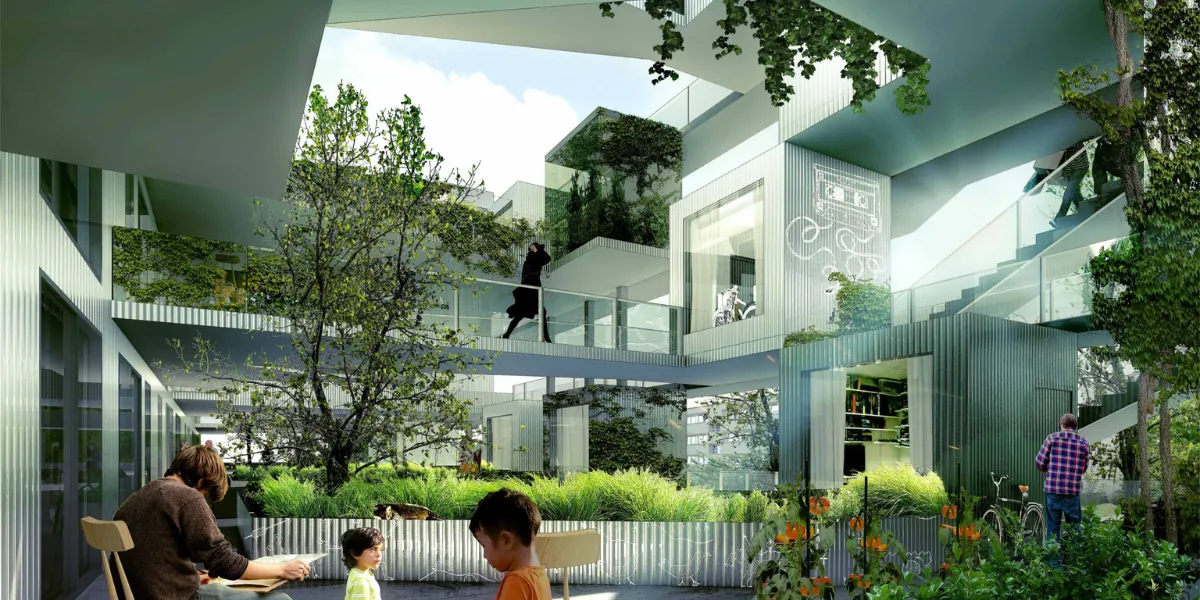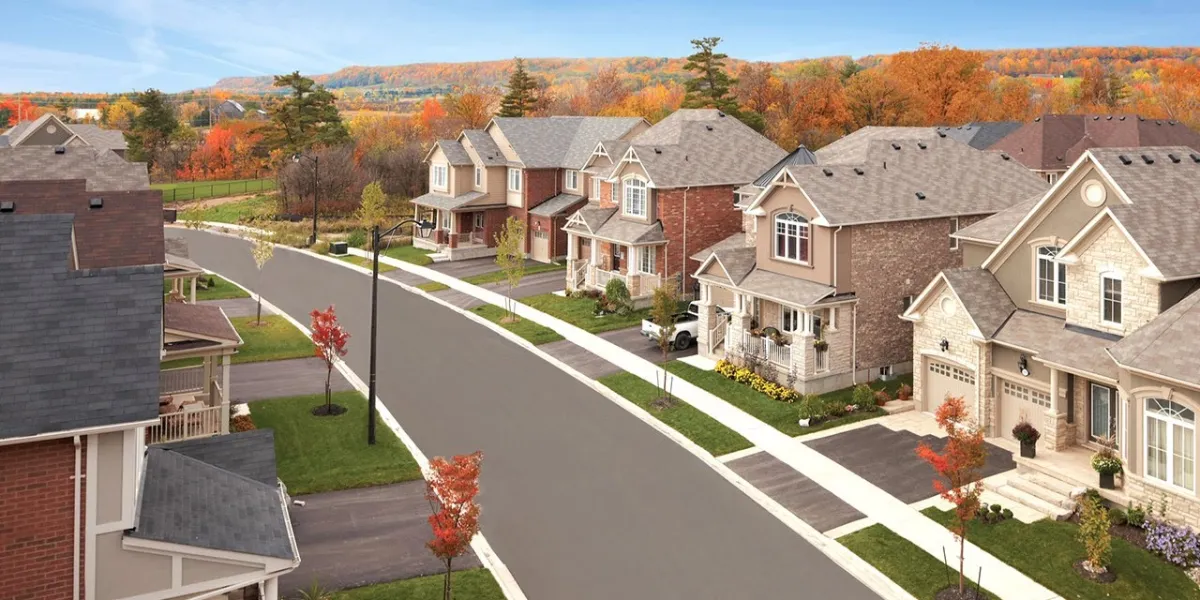The Rise of Condominiums: Are Detached Freehold Homes Becoming Obsolete?

The Rise of Condominiums:
Are Condos Taking Over Detached Freehold homes? increasing prominence of condominiums in the housing market. Condos, characterized by units within a larger building or complex, have been experiencing a surge in popularity due to various factors such as urbanization, changing lifestyles, and affordability.
Are Detached Freehold Homes Becoming Obsolete?:
This question reflects the concern or curiosity about the future of detached freehold homes in light of the rising popularity of condominiums. Detached freehold homes, traditionally seen as the epitome of homeownership, are facing challenges in competing with condos, particularly in urban areas where space is limited and demand for convenience and amenities is high.
By juxtaposing the rise of condominiums with the potential obsolescence of detached freehold homes, this heading prompts a deeper exploration into the dynamics of the housing market, including shifts in consumer preferences, urban development trends, and the evolving concept of homeownership. It invites readers to consider whether the traditional notion of homeownership embodied by detached homes is being supplanted by the more contemporary and urban-friendly lifestyle offered by condominium living.
Urban Living Shift: The Growing Popularity of Condos Over Detached Homes

Urban Living Shift:
This part of the heading acknowledges a fundamental change in the way people choose to live, emphasizing a shift towards urban areas. This shift could be driven by various factors such as job opportunities, access to amenities, cultural attractions, and a desire for a vibrant urban lifestyle.
The Growing Popularity of Condos Over Detached Homes:
This segment highlights the specific trend of condominiums gaining popularity over traditional detached homes in urban environments. Condos, with their compact size, shared amenities, and often more affordable price points compared to detached homes, are becoming increasingly attractive to urban dwellers.
By combining these elements, the heading suggests that there is a broader trend underway where more people are opting for urban living experiences, and within that trend, condominiums are preferred over detached homes. It invites readers to delve deeper into the reasons behind this shift, such as changing demographics, housing affordability, lifestyle preferences, and the impact of urbanization on housing markets.
Condos vs. Detached Homes: What’s Driving the Change in Housing Preferences?
Condos vs. Detached Homes:
This part of the heading sets up a comparison between two distinct types of housing: condominiums and detached homes. Condos typically refer to units within a larger building or complex, while detached homes are standalone structures not connected to other dwellings.
What’s Driving the Change in Housing Preferences?:
This segment of the heading poses a question, inviting analysis and exploration into the underlying reasons behind the shifting preferences in the housing market. It prompts consideration of various factors such as economic conditions, demographic changes, lifestyle choices, urbanization trends, and shifts in societal values.
By combining these elements, the heading prompts readers to delve deeper into the complex dynamics influencing housing preferences. It suggests that there is a significant transformation underway in the housing market, and understanding the drivers behind this change is crucial for stakeholders such as homebuyers, developers, policymakers, and real estate professionals.
Real Estate Trends: Are Condos Outpacing Detached Freehold Homes?
Real Estate Trends:
This part of the heading acknowledges the importance of understanding current trends within the real estate market. Real estate trends encompass various aspects such as sales volume, price fluctuations, inventory levels, and shifts in buyer preferences.
Are Condos Outpacing Detached Freehold Homes?:
This segment poses a specific question regarding the relative performance of condominiums and detached freehold homes in the real estate market. It suggests that there may be a trend emerging where condos are surpassing detached freehold homes in certain key metrics such as sales velocity, price appreciation, or market demand.
By combining these elements, the heading prompts readers to examine recent data and market indicators to determine whether there is indeed a trend of condos outpacing detached freehold homes. It encourages analysis of factors such as demographic shifts, urbanization patterns, lifestyle preferences, and economic conditions that may be driving these trends. Understanding these dynamics can provide valuable insights for investors, homebuyers, developers, and other stakeholders in the real estate industry.
City Skylines Transforming: The Impact of Condos on Detached Home Markets

City Skylines Transforming:
This part of the heading highlights the visible changes occurring in urban environments, particularly in the skyline, as a result of increased development, particularly in the form of condominium towers. This suggests a tangible transformation of the city’s aesthetic and spatial characteristics.
The Impact of Condos on Detached Home Markets:
This segment directs attention to the influence that the proliferation of condominiums is having on the market for detached homes. It acknowledges that the rise of condos is not just a physical transformation but also has broader implications for the housing market, particularly for traditional detached home markets.
By combining these elements, the heading suggests that the growing presence of condominiums is not only altering the physical appearance of cities but also reshaping the dynamics of the housing market, particularly in relation to detached homes. It prompts readers to consider how these changes are impacting property values, demand for different types of housing, neighborhood demographics, and urban planning policies. Understanding the impact of condos on detached home markets is essential for various stakeholders, including real estate developers, urban planners, policymakers, and residents, as they navigate the evolving urban landscape.
From Suburbs to Sky-high: The Decline of Detached Freehold Homes
From Suburbs to Sky-high:
This part of the heading signifies a shift in housing preferences and development patterns. It suggests that there is a transition occurring from traditional suburban living characterized by detached homes to a more vertical urban lifestyle represented by high-rise condominiums or apartment buildings reaching towards the sky.
The Decline of Detached Freehold Homes:
This segment highlights the specific trend of detached freehold homes losing favor among homebuyers and developers. It suggests that these types of homes, once synonymous with homeownership aspirations and suburban living, are now facing challenges in competing with alternative housing options, such as condominiums or townhouses.
By combining these elements, the heading implies that there is a broader trend of urbanization and densification reshaping the housing landscape. It suggests that the demand for detached freehold homes is waning as more people opt for higher-density living arrangements in urban centers. This shift has implications for urban planning, housing affordability, neighborhood demographics, and the overall urban fabric. Understanding the decline of detached freehold homes is essential for stakeholders involved in real estate development, urban planning, housing policy, and community development as they navigate the changing dynamics of the housing market.
Condos on the Rise: What Does This Mean for the Future of Detached Homes?

Condos on the Rise:
This part of the heading indicates a significant trend where condominiums are experiencing a surge in popularity and development. It suggests that condos are becoming a prominent feature of the real estate landscape, particularly in urban areas, due to factors such as changing demographics, lifestyle preferences, and urbanization.
What Does This Mean for the Future of Detached Homes?:
This segment poses a question regarding the potential impact of the rising popularity of condos on detached homes. It prompts readers to consider how the increasing demand for condominiums might affect the market dynamics, pricing, and desirability of detached homes in the future.
By combining these elements, the heading suggests that there is a shifting dynamic in the housing market, with condos gaining traction at the expense of detached homes. It implies that the rise of condos could potentially alter the traditional landscape of homeownership, neighborhood development, and urban planning. Understanding the implications of this trend is crucial for various stakeholders, including homebuyers, real estate developers, policymakers, and urban planners, as they navigate the evolving housing market and plan for the future of communities.
The Condo Craze: Why More People Are Choosing Condos Over Detached Houses
The Condo Craze:
This part of the heading signifies a surge or frenzy in interest and demand for condominiums. It suggests that condos have become highly sought after among homebuyers, developers, and investors, leading to a notable increase in their market presence and prominence.
Why More People Are Choosing Condos Over Detached Houses:
This segment poses a question regarding the motivations driving individuals to opt for condominium living over traditional detached houses. It prompts an examination of various factors contributing to the preference for condos, such as lifestyle preferences, affordability, urbanization, amenities, and changing societal norms.
By combining these elements, the heading implies that there is a significant shift occurring in housing preferences, with more individuals choosing condominiums over detached houses. It suggests that the appeal of condos extends beyond mere housing, encompassing a broader lifestyle choice that resonates with contemporary urban dwellers. Understanding the drivers behind this “condo craze” is essential for stakeholders in the real estate industry, urban planners, policymakers, and researchers as they seek to adapt to changing housing trends and plan for the future development of communities.
Economic Implications: Condos’ Influence on Housing Market

This heading delves into the broader economic consequences of the growing prominence of condominiums within the housing market. Condos have a significant impact on various aspects of the economy, from local real estate markets to broader economic indicators. Here, we explore how the rise of condos affects factors such as housing prices, supply and demand dynamics, construction trends, employment in the real estate sector, tax revenues for municipalities, and even lending practices within the financial sector. By understanding the economic implications of condos’ influence on the housing market, stakeholders can better anticipate and adapt to the evolving landscape of residential real estate.
Future Outlook: Predicting the Fate of Detached Homes Amid Condo Expansion
This heading addresses the anticipated trajectory of detached homes in the context of the expanding condo market. It involves forecasting how the increasing popularity and proliferation of condominiums might impact the demand, value, and desirability of detached homes in the foreseeable future. Factors such as demographic shifts, urbanization trends, regulatory changes, affordability considerations, and evolving consumer preferences are all crucial in shaping this outlook. By analyzing these dynamics, stakeholders can gain insights into the long-term viability and sustainability of detached homes within the housing market landscape dominated by condo expansion. This forecast aids in strategic decision-making for homeowners, developers, investors, policymakers, and other relevant parties involved in the real estate industry.





Join The Discussion